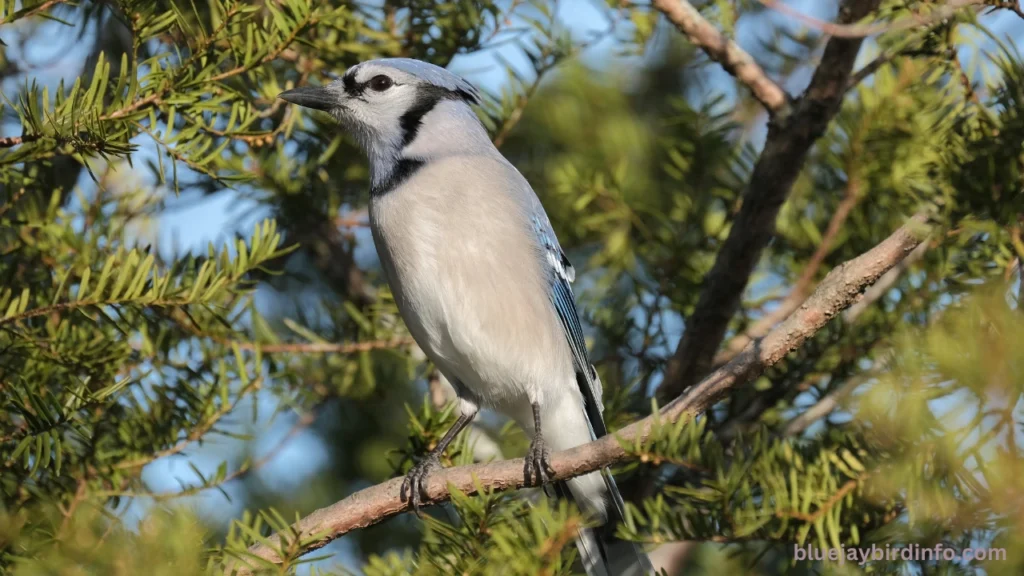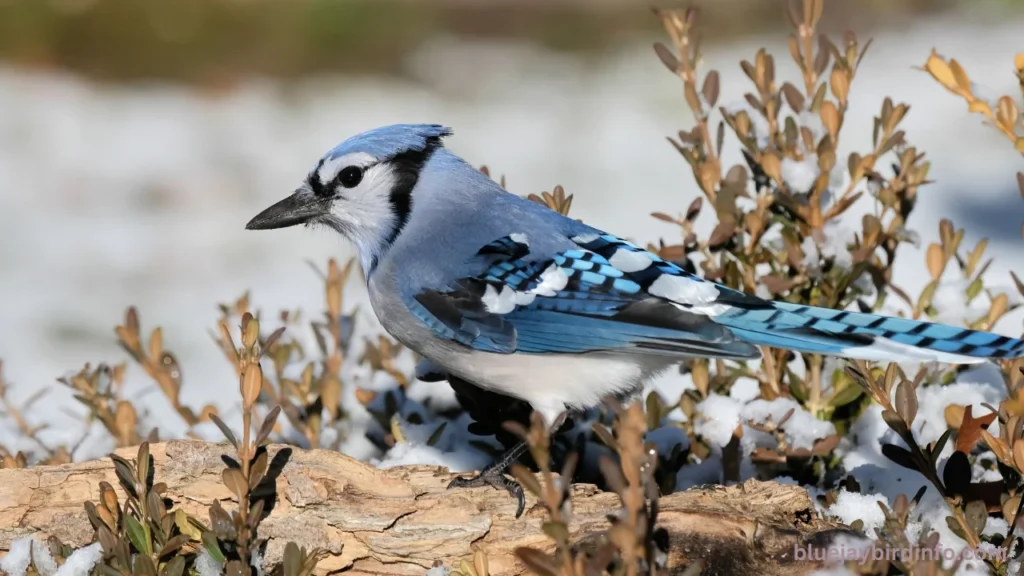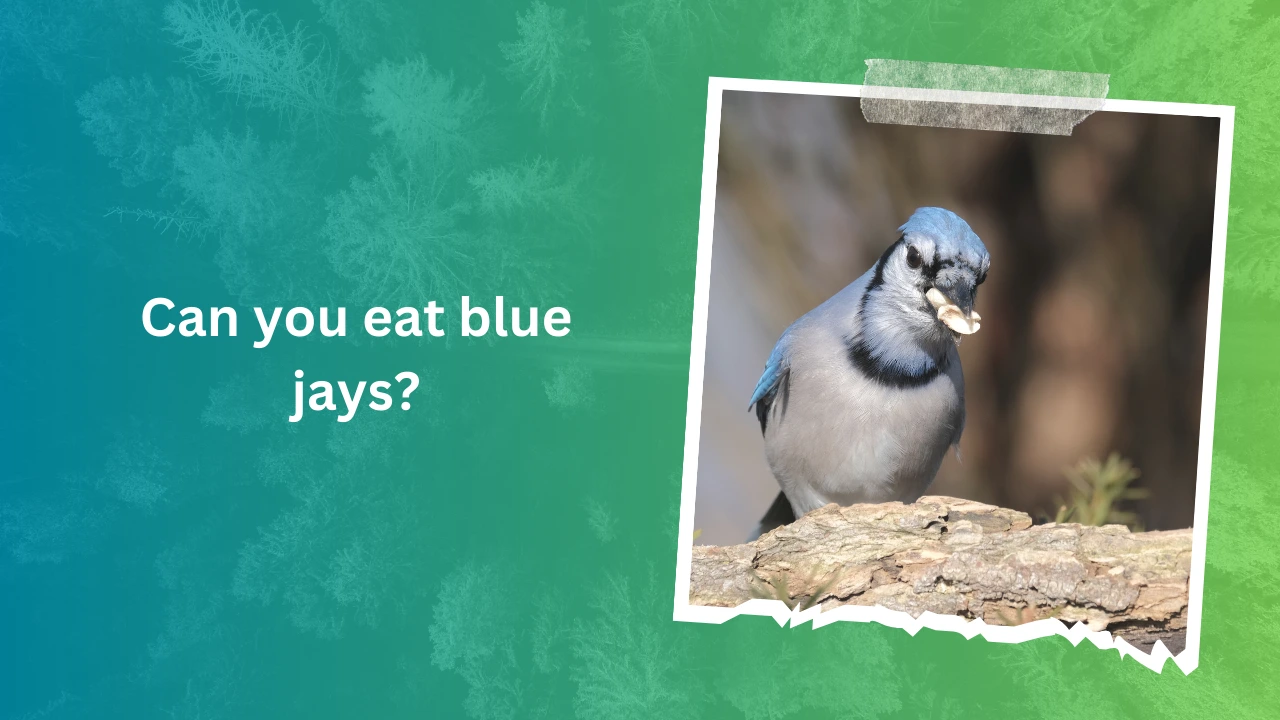Blue jays are more than just vibrant feathered creatures that flit through our backyards; they are intelligent and resourceful birds playing a vital role in our ecosystems.
Known for their distinctive blue plumage and loud calls, blue jays are often seen as messengers of nature. They help in seed dispersal, contributing to the growth of various plants and trees, making them essential to the habitats they thrive in.
Yet, amid their beauty and ecological significance, one question lingers in the minds of some: Can these captivating birds be eaten?
While the idea of consuming blue jays might spark curiosity, the answer is not as straightforward as it seems. This article will explore why eating blue jays is generally discouraged, highlighting critical factors such as ethical considerations, potential health risks, and legal restrictions surrounding their consumption.
It’s essential to understand that every creature plays a part in maintaining the delicate balance of our ecosystems, and blue jays are no exception.
Understanding the role of blue jays in our environment is crucial for appreciating their place in nature. They inhabit woodlands, suburbs, and gardens, and their presence is often a sign of a healthy ecosystem.
However, with the rise of urbanization and habitat destruction, the importance of protecting wildlife populations has never been more pressing. This blog will delve into the implications of blue jay consumption, shedding light on why preserving these birds is vital for ecological harmony and encouraging responsible interaction with the wildlife that surrounds us.
Contents
- 1 Ethical Considerations
- 2 Legal Restrictions
- 3 Health Risks
- 4 Cultural and Traditional Practices
- 5 Alternative Food Sources
- 6 Conclusion
- 7 FAQ’s
- 7.1 Is it legal to hunt and eat blue jays?
- 7.2 What are the ethical implications of eating blue jays?
- 7.3 Are there health risks associated with eating blue jays?
- 7.4 What are some alternative food sources to consider?
- 7.5 Can blue jays carry diseases that affect humans?
- 7.6 What cultural practices exist around the consumption of wild birds?
Ethical Considerations
When contemplating the idea of consuming blue jays, it is essential to recognize the ethical implications of consuming wildlife.
Every species, including blue jays, plays a critical role in maintaining biodiversity and ensuring the balance of our ecosystems. Hunting or eating wild animals can disrupt local populations and alter the intricate relationships that exist within their habitats.
Removing a single species, even one as common as the blue jay, can have unforeseen consequences on plant life, seed dispersal, and other animal species that depend on them.
Moreover, moral arguments against hunting or eating wild animals often center around the inherent value of all living creatures.
Blue jays, like all wildlife, possess a unique ecological role that contributes to the beauty and functionality of our natural world. By choosing to respect these birds and their habitats, we affirm our commitment to the principles of conservation and the preservation of life in all its forms.
Ultimately, emphasizing the importance of respecting wildlife and their natural habitats allows us to cultivate a deeper appreciation for nature.
Instead of viewing animals solely as potential food sources, we should consider them as vital members of our ecosystem, deserving of protection and care. By fostering a sense of responsibility towards wildlife, we can help ensure a balanced and thriving environment for future generations.
Legal Restrictions
Understanding the legal restrictions surrounding the hunting and consumption of wildlife is crucial for anyone considering eating blue jays or any other wild birds. In many regions, blue jays are protected under wildlife conservation laws, which prohibit their hunting or capture without special permission.
Specific laws can vary significantly from one area to another, so it’s essential to familiarize yourself with your local regulations before taking any action. Many states and provinces have established hunting seasons and limits on the types of animals that can be hunted, designed to promote sustainable wildlife populations and protect species from overexploitation.
Violating these laws can result in severe penalties, including hefty fines, loss of hunting privileges, or even criminal charges, depending on the severity of the violation. These consequences are intended to deter illegal hunting and ensure that wildlife populations remain stable and healthy.
It is crucial to respect these regulations not only for your safety but also for the health of the ecosystem.
Furthermore, if you are considering hunting any wildlife, including blue jays, obtaining the necessary permits or licenses is vital. These documents often require you to demonstrate knowledge of ethical hunting practices and commitment to conservation.
By following legal guidelines and respecting wildlife protection laws, you contribute to the ongoing efforts to sustain biodiversity and ensure that future generations can enjoy the beauty of wildlife in their natural habitats.
Health Risks
When it comes to consuming wild birds like blue jays, there are several health risks that one must consider. Wild birds can carry a variety of parasites and diseases that may be harmful to humans.
For instance, they can harbor salmonella, which can lead to severe gastrointestinal issues if ingested. Additionally, wild birds may be exposed to toxins from their environment, such as pesticides or heavy metals, which can accumulate in their tissues and pose serious health threats when consumed.
Proper preparation and cooking methods are essential to minimize these risks. Cooking bird meat thoroughly can kill most pathogens, but it’s crucial to ensure that it reaches the right internal temperature to be safe for consumption.
Moreover, using good hygiene practices, such as washing hands and surfaces after handling raw bird meat, can prevent cross-contamination with other foods.
It’s also worth noting that some individuals may have allergic reactions to bird meat, similar to other food allergies. Symptoms can range from mild to severe, so it is advisable for anyone who has experienced allergic reactions to poultry or other birds to exercise caution.
Overall, the potential health risks associated with eating wild birds underscore the importance of understanding what you’re consuming and taking necessary precautions to protect your health.
Cultural and Traditional Practices
Throughout history, various cultures have incorporated the consumption of wild birds into their cuisines, reflecting a deep connection to nature and traditional practices. In some indigenous cultures, for example, the hunting of birds like blue jays has been a part of communal gatherings, where the meat is prepared and shared as a way to celebrate community and bounty.
These practices often carry significant historical and cultural weight, linking people to their ancestors and the land they inhabit. They serve as a reminder of the interdependence between humans and wildlife, illustrating a lifestyle where every part of the animal was utilized and honored.

However, as society evolves, the ethical implications of continuing these practices come into question. Modern advancements in agriculture and food production have provided alternative sources of protein, leading to debates about whether hunting wild birds is necessary or sustainable.
Moreover, growing awareness of biodiversity and the importance of preserving wildlife populations raises concerns about the impact of such practices on ecosystems. Balancing cultural traditions with modern ethical considerations requires a thoughtful approach, encouraging dialogue about the significance of these practices while also promoting the need for conservation and respect for all living creatures in our ever-changing world.
Alternative Food Sources
As society increasingly recognizes the importance of sustainability and ethical consumption, there are numerous alternatives to consuming wildlife, such as blue jays.
One viable option is to incorporate plant-based proteins into our diets, which can provide essential nutrients without the environmental impact associated with hunting and consuming wild animals. Legumes, nuts, and grains not only offer diverse flavors and textures but also support local agriculture and reduce our carbon footprint.
Additionally, choosing farmed animals that are raised humanely can further mitigate the pressures on wild species, promoting a more sustainable food system.
Diversifying our diets can also lead to numerous benefits. By embracing a wider range of food options, we not only enhance our nutritional intake but also decrease our reliance on wild species, helping to protect them from overexploitation and habitat loss.
Furthermore, sustainable practices in agriculture can foster biodiversity, ensuring that ecosystems remain healthy and resilient. Making informed choices about the foods we consume empowers individuals to support conservation efforts and encourages a more respectful relationship with the environment.
In this way, we can enjoy delicious meals while simultaneously caring for the planet and its inhabitants.

Conclusion
In summary, the decision to consume blue jays raises several ethical considerations, legal restrictions, and health risks that cannot be overlooked. The ethical implications of hunting and consuming wildlife highlight the potential negative impacts on biodiversity and ecosystem balance.
Additionally, various laws govern the hunting of these birds, and failure to comply can result in significant penalties. The health risks associated with consuming wild birds, such as parasites and diseases, further complicate the issue, making it clear that eating blue jays is fraught with challenges.
Ultimately, the focus should be on wildlife conservation and the ethical implications of consuming wild animals. Preserving natural populations and their habitats is essential for maintaining ecological balance and protecting our planet’s biodiversity.
As we become more aware of our dietary choices, it’s crucial to consider the broader implications of our actions on wildlife and their ecosystems.
I encourage readers to support wildlife conservation efforts by advocating for responsible practices and engaging in initiatives that protect our natural resources.
Additionally, exploring sustainable and ethical food choices, such as plant-based proteins or responsibly sourced animal products, can help foster a more compassionate relationship with the environment. Together, we can make informed decisions that benefit both our health and the health of the planet.
Also, read other articles related to Blue Jay Habits!
FAQ’s
Is it legal to hunt and eat blue jays?
The legality of hunting and consuming blue jays varies by region. It’s important to check local wildlife conservation laws, as many areas have protections in place for songbirds.
What are the ethical implications of eating blue jays?
Consuming blue jays raises ethical concerns regarding biodiversity and the intrinsic value of wildlife. Hunting can disrupt ecosystems and negatively impact bird populations.
Are there health risks associated with eating blue jays?
Yes, consuming wild birds, including blue jays, can pose health risks such as exposure to parasites, toxins, and diseases. Proper preparation and cooking are essential to minimize these risks.
What are some alternative food sources to consider?
Sustainable and ethical alternatives include plant-based proteins, farmed animals, and responsibly sourced meats. These options can reduce reliance on wild species and promote ecological balance.
Can blue jays carry diseases that affect humans?
Like many wild birds, blue jays can carry diseases that may be transmissible to humans. Precautions should be taken when handling or consuming wild birds.
What cultural practices exist around the consumption of wild birds?
Various cultures have traditional practices involving the consumption of wild birds. However, the ethical implications of these practices are increasingly scrutinized in modern society.








